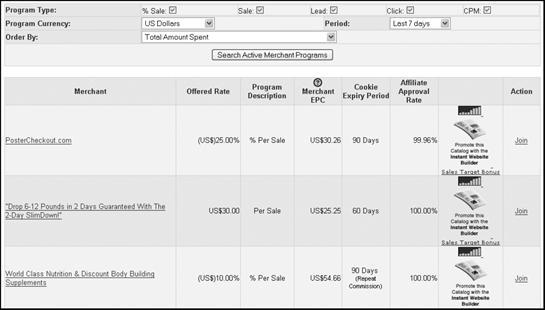Spyware is so prevalent because it works. Throw enough advertisements in front of enough people and, statistically, a certain percentage will always buy something in response. So, it's in the advertiser's best interests to flood the market with as many advertisements as possible. (Advertising.com estimates that pop-up ads are up to ten times more effective than banner ads, partially due to the "annoyance" factor of having them obscure the user's screen.)
The five main spyware culprits are:
Any company that wants to advertise online. These companies include pornography sites, Viagra resellers, Internet dating services, or even brand name companies like Motorola, Yahoo, Dell, Verizon, Citibank, Air France, Toshiba, American Express, Circuit City, Apple, and NetFlix.
Internet advertising brokers. These middlemen place a company's banner and pop-up ads on popular websites via adware programs like Eudora and networks of spyware-infected computers.
Spyware companies. These companies create the actual spyware programs that embed themselves in a computer and make themselves difficult to remove. Some infamous spyware companies and the software they distribute include 180solutions (Zango, n-Case), Direct Revenue (ABetterInternet and OfferOptimizer), Claria (ScreenScenes and eWallet), WhenU (SaveNow) and eXact Advertising (BargainBuddy, BullsEye).
Software bundlers. These companies sell or distribute software, such as filesharing programs or browser toolbars, and earn extra money by agreeing to include spyware with their own programs.
Affiliates. These are website operators who agree to offer spyware-infested programs on their website. For example, the eXact Advertising spyware company runs Yubilee (www.yubilee.com), a spyware-infested site shown in Figure 20-2.
The big companies benefit from spyware because they get their advertisements distributed all over the Internet; the Internet advertising brokers get paid because they can distribute their clients' ads to as many people as possible; the spyware companies get paid by the Internet advertising brokers; the software bundlers get paid by the spyware companies; and any website operator who signs up as an affiliate with the spyware company gets paid every time someone installs the spyware on his computer.
Figure 20-2. Spyware companies often run separate websites offering free software loaded with spyware.
Spyware not only works for the advertisers, but for everyone else making money along the way. Figure 20-3 shows a spyware company's website, promoting spyware programs to website operators as a way to make money (25 cents per install) and to companies that wish to advertise over the Internet.
Figure 20-3. Many "marketing" companies offer spyware programs for advertisers and website operators.
To learn more, visit the Affiliate Marketing Directory (http://affiliatemarketingworld.com/directory); read Revenue, a magazine focused exclusively on affiliate marketing (www.revenuetoday.com); browse through Klixxx Network (www.klixxx.com) to learn how the pornography industry uses affiliate marketing; read reviews of affiliate marketing software at Affiliate Software Comparison (www.affiliate-software-review.com); or read AVN Online (www.avnonline.com), shown in Figure 20-4, a magazine for helping adult entertainment websites market themselves over the Internet.
Figure 20-4. AVN Online offers pornography website operators tips for marketing their business more effectively through spyware and spam.
Spyware is especially popular with companies hawking erectile dysfunction pills, pornography, and online gambling. These companies may be perfectly legitimate, but they aren't likely to run banner ads on mainstream websites due to the sensitive nature of their products or services. As a result, spyware might be considered the best and only way for them to reach a mass online audience.
Not only is spyware a major nuisance for innocent computer users, but it can also cause more serious headaches for advertisers through something known as affiliate fraud. Affiliate fraud takes advantage of the way that many websites accept advertising. Large websites, such as CNN and Yahoo!, can demand money up front to place ads, but smaller websites don't have that clout. Instead, small websites often post the ads and receive a referral fee later if someone clicks on that ad and buys something from that merchant. Agreements that allow websites to display ads and get paid by advertisers are called affiliate networks.
To learn more about how affiliate marketing programs work, you can visit ClixGalore (www.clixgalore.com), Commission Junction (www.cj.com), LinkShare (www.linkshare.com), Performics (www.performics.com), or TradeDoubler (www.tradedoubler.com).
Figure 20-5 lists some of the different advertisers you can promote through your website along with how much each pays. (The ClixGalore website keeps the most recent list. You may recognize some of these advertisers as the same ones appearing in spyware pop-up ads.)
If a website joins an advertiser's affiliate program, the website owner can display ads and get paid every time someone clicks on that ad. Unfortunately, this only works if the website owner can attract enough visitors to his website in the first place.
Rather than take the time and energy to build an audience, some dishonest website owners chose a shortcut. They'll sign up as an affiliate with an advertising network and then create spyware to display advertisements. Once this spyware spreads, people will get bombarded with pop-up ads. If they click these pop-up ads, the credit (and cash) for each click goes to the affiliated website, without the user's ever having visited that affiliated website. If a company only advertises with banner and pop-up ads, there's a good chance that someone will write a program to display those ads through a spyware network without the company's knowledge.
Spyware companies can hurt legitimate affiliate websites too. Some spyware programs will wait until a visitor clicks on a banner ad before displaying a pop-up ad. When the user closes the pop-up, the spyware program tricks the merchant into thinking the visitor came from the spyware company's website (not the site with the banner ad). If the visitor buys anything, the merchant pays the commission to the spyware company instead of the honest website affiliate.



